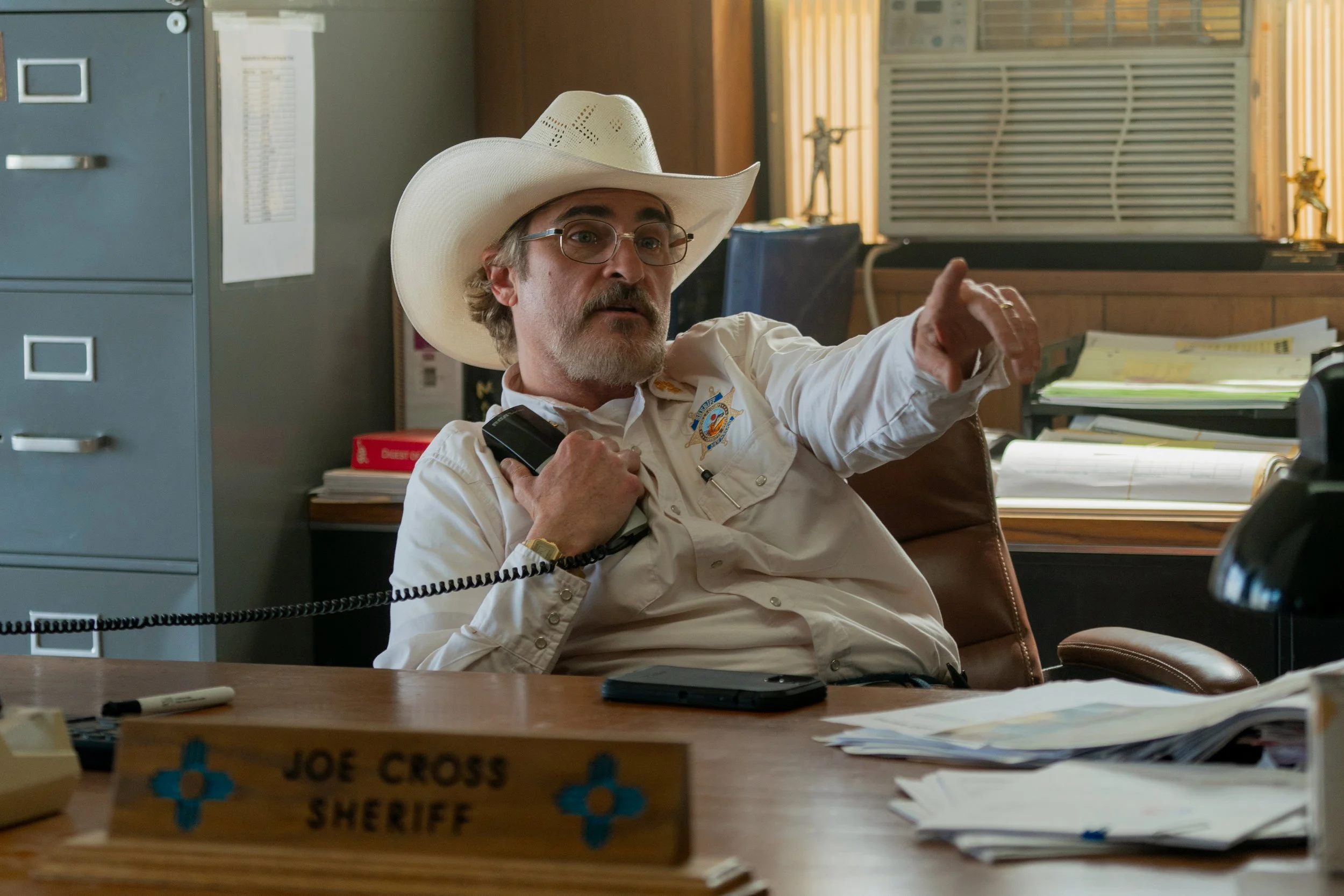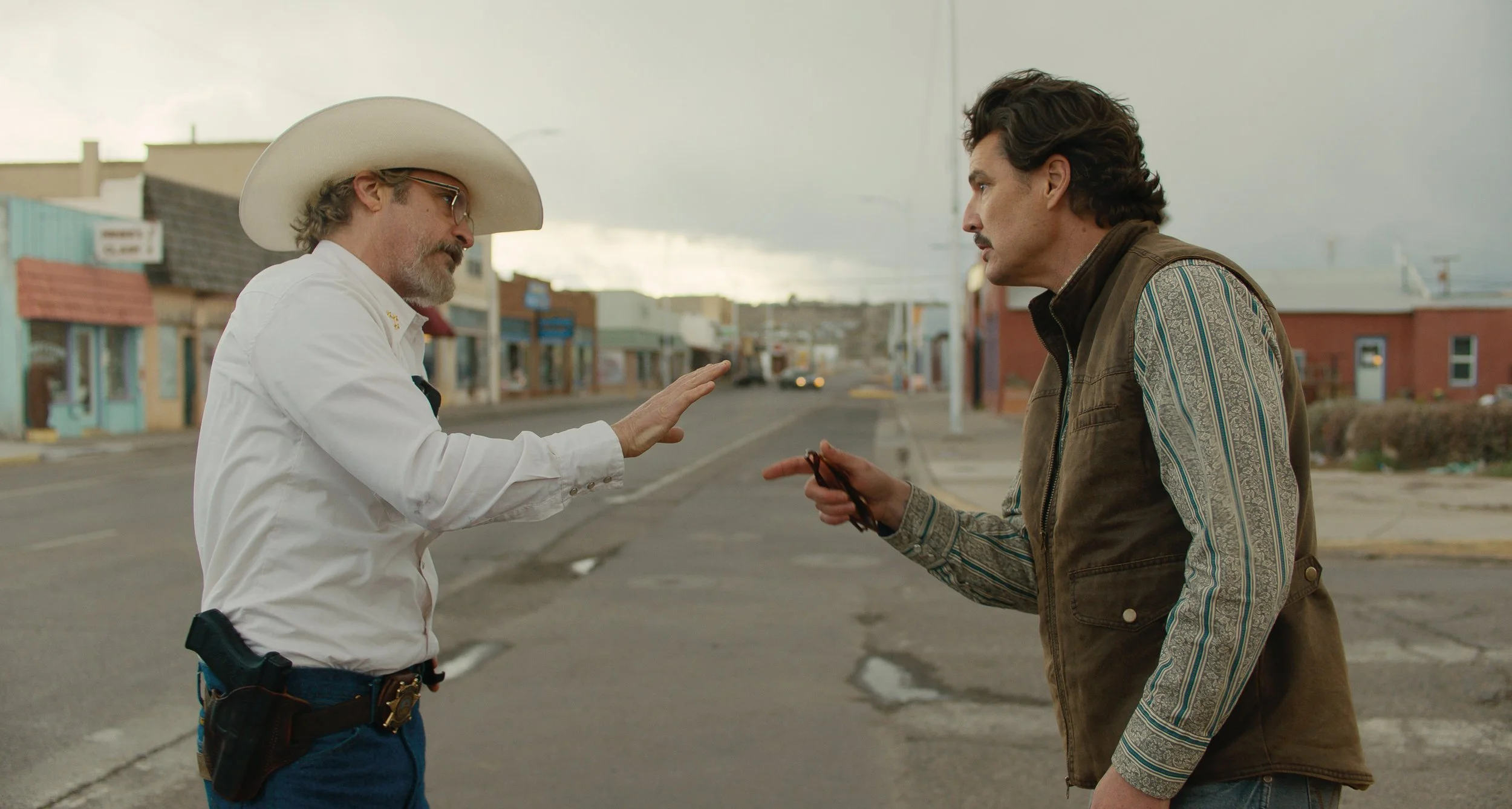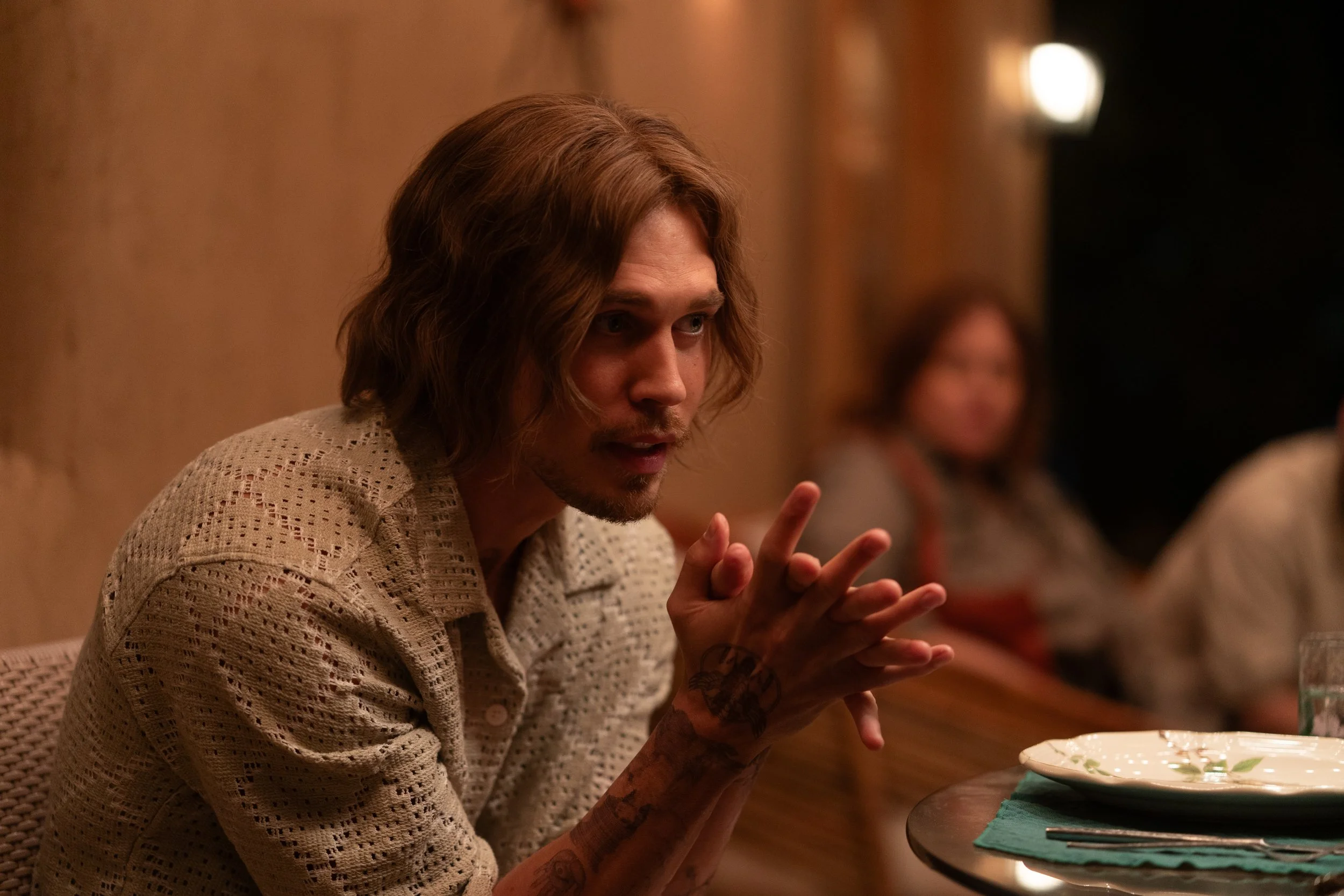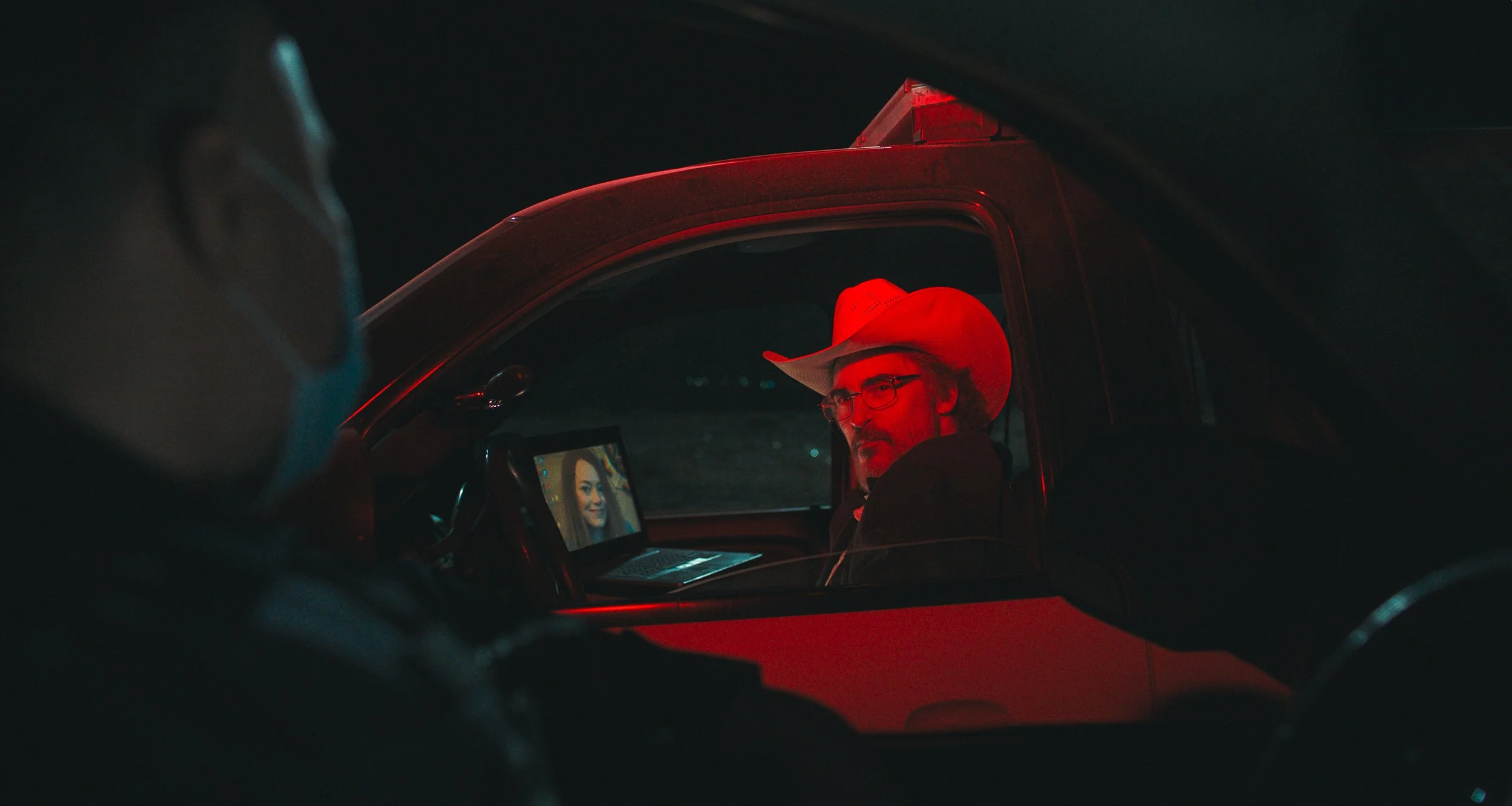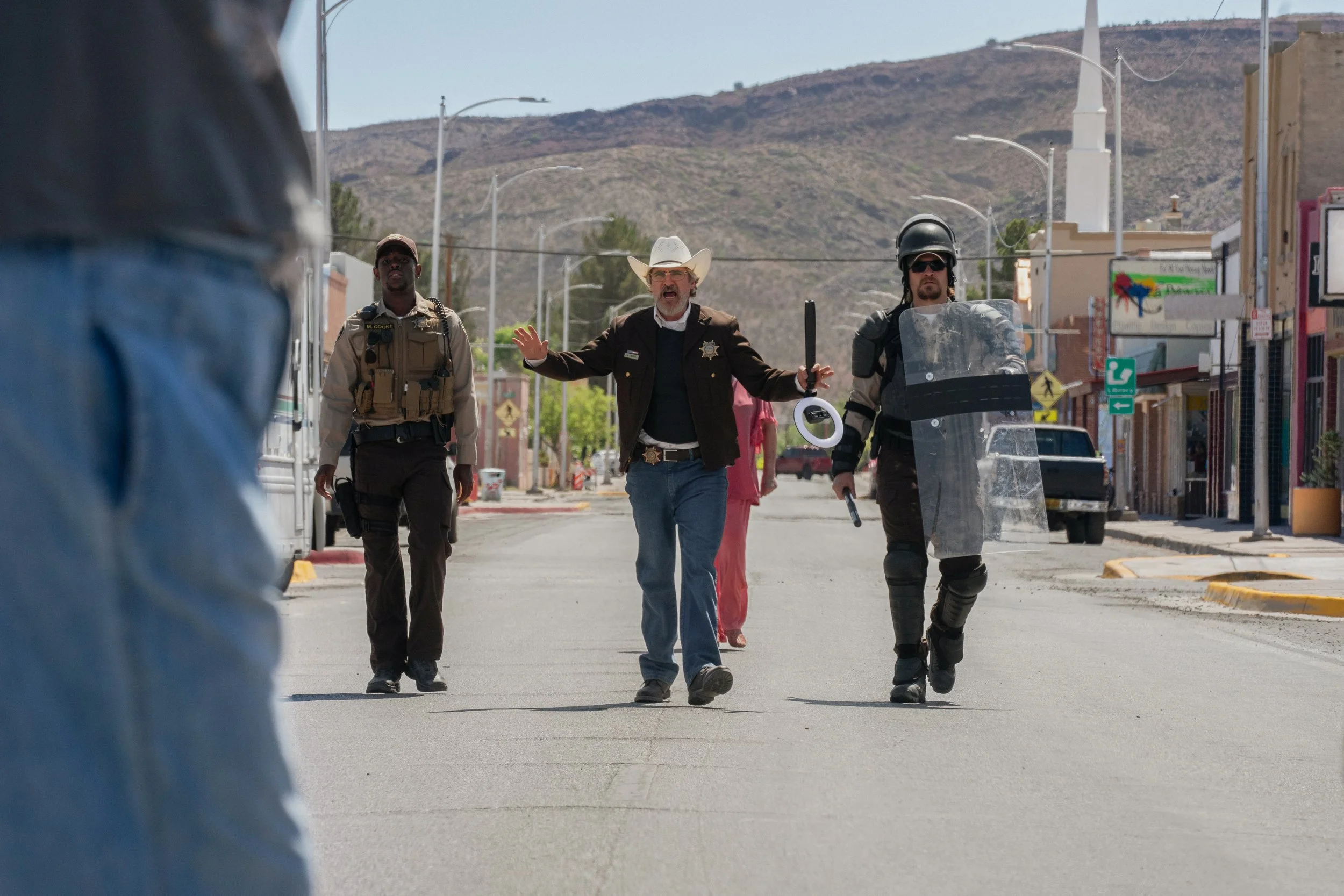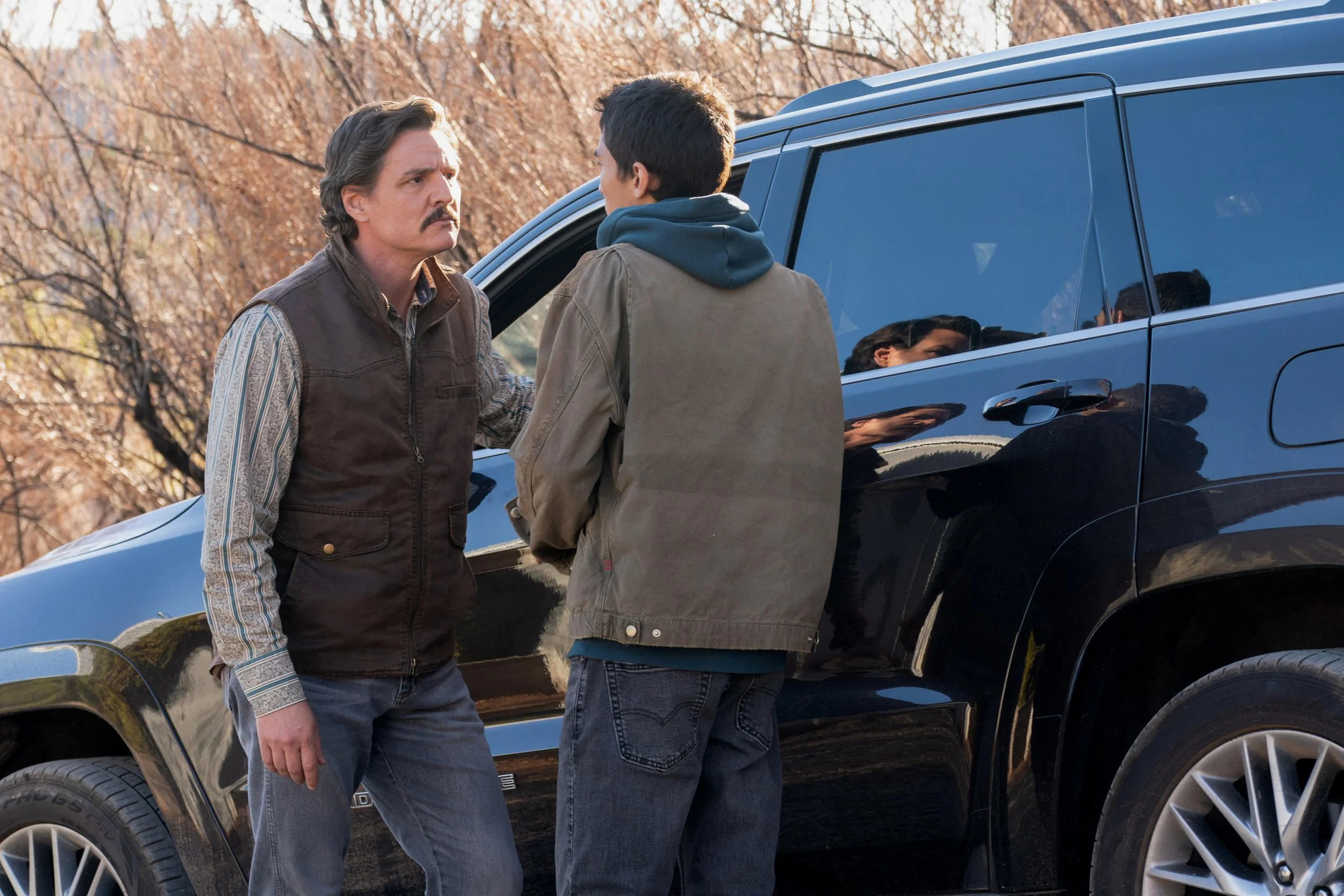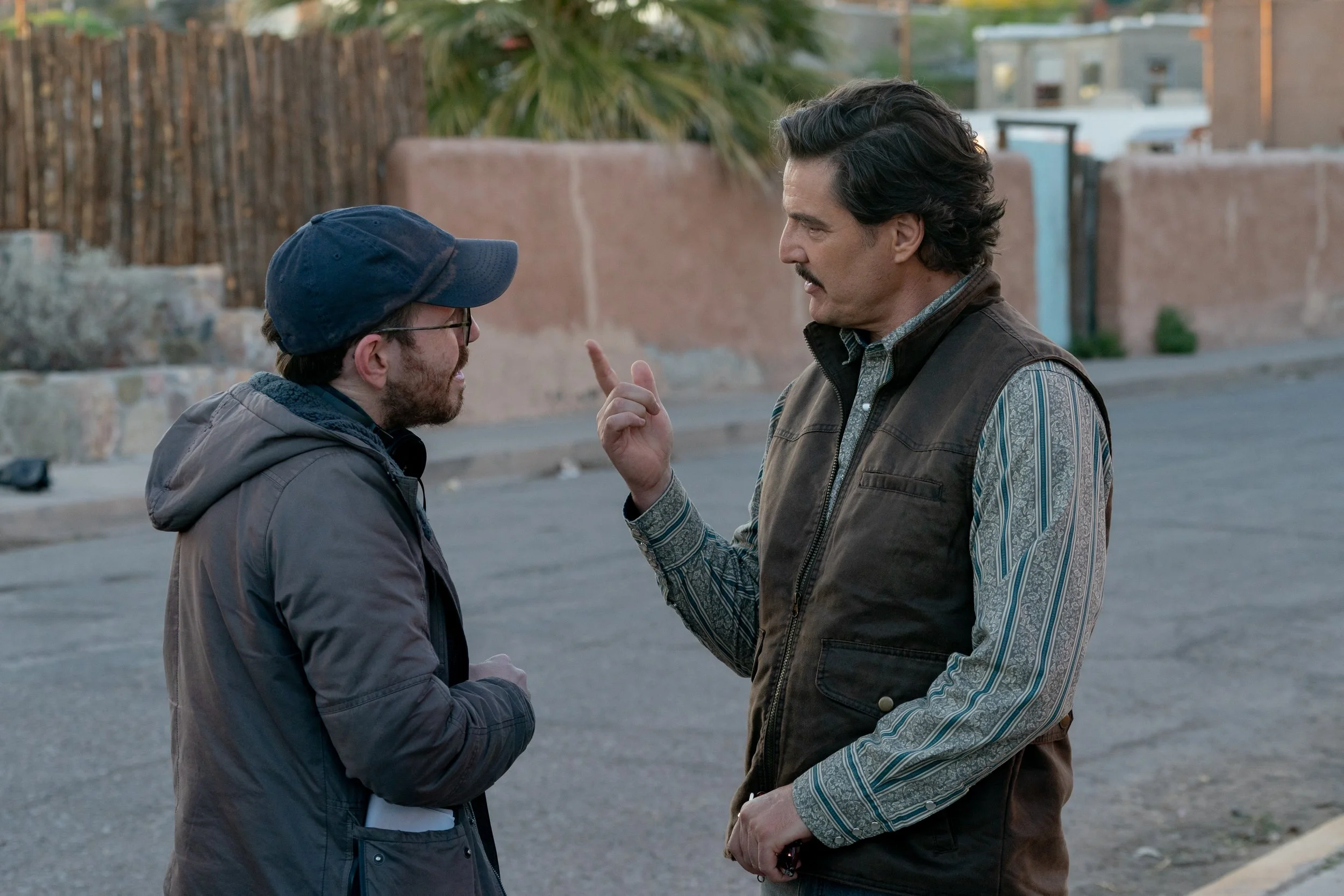Ari Aster’s Eddington is a cinematic fever dream—an apocalyptic Western where cowboy hats are traded for face masks, and six-shooters for smartphones. Equal parts satire, horror, and political cartoon, it is the first major American film to tackle the COVID-19 era with both comedic bite and dramatic heft. While it’s definitely too long and sometimes too pleased with its own chaos, it’s also a rich, immersive, and often hilarious pressure cooker of a movie.
Set in May 2020 in the fictional town of Eddington, New Mexico (shot on location in the eerily perfect Truth or Consequences), the story begins with a political standoff that spirals into civic collapse. Sheriff Joe Cross (Joaquin Phoenix, in a twitchy, quietly tragic performance) goes head-to-head with Mayor Ted Garcia (Pedro Pascal, smooth and slippery) over the arrival of a looming A.I. data center—an ominous tech monolith that feels like both promise and plague. The fight becomes symbolic, then ideological, and eventually biblical in its scope.
Everyone in this town is either unraveling, deluded, or trying to monetize the madness. Emma Stone is heartbreaking as Joe’s wife Louise, a fragile woman lost in QAnon rabbit holes and toxic nostalgia, expressing her trauma through doll-making and online cultism. Her foil is Austin Butler’s Vernon Peak, a disturbing messiah figure whose self-help sermons echo with weaponized empathy. Think Charles Manson by way of TikTok.
The town, a microcosm of pandemic America, is full of people trying desperately to be heard. There's the overachieving deputy (Luke Grimes), the self-styled libertarian tough guy (Micheal Ward), and a trio of teens whose BLM protest is filtered through memes and thirst posts. Deirdre O’Connell plays Louise’s mother, holed up in the family’s cluttered hilltop home, a hoarder of both toilet paper and conspiracy theories. Meanwhile, Clifton Collins Jr. steals every scene as Lodge, a mentally ill drifter who serves as a chaotic Greek chorus for the town’s descent. His opening monologue—part gospel, part gibberish—sets the tone for the madness to follow.
This is Aster’s fourth film, and it may be his most conceptually ambitious. Eddington plays like Beau is Afraid collided with Blood Simple in the middle of a social media hurricane. It's “a Western where the guns are phones,” as Aster puts it, but it’s also a horror movie about a country possessed by itself. The cinematography by Darius Khondji is astonishing—beautiful, wide shots of the New Mexico desert constantly contrast with suffocating interior closeups that evoke claustrophobia and paranoia. You feel trapped, just like the characters.
The film’s tone is deliberately unstable. One minute it’s a Coen Brothers comedy, the next it’s a slow-burn thriller, and the next it’s screaming in your face like a paranoid livestream. Sound design is used like a weapon—booms echo like gunshots, and you can hear every digital notification as if it’s a ticking bomb. Bobby Krlic and Daniel Pemberton’s eerie, pulse-pounding score adds to the unease, blurring the line between satire and psychological terror.
There are moments that are so absurd they’ll make you laugh out loud—like a shootout that devolves into a glitchy livestream, or a town hall meeting that turns into a literal boxing match. But beneath the comedy is something real: a deeply unnerving portrait of a nation caught in the throes of digital schizophrenia. Everyone's living in their own version of reality, reinforced by algorithms and fear.
And yet, Eddington never stoops to smugness. One of Aster’s gifts as a filmmaker is his refusal to turn anyone into a caricature, even when they’re spouting nonsense. The film doesn't choose a political side—its targets are hypocrisy, isolation, and the collapse of common ground. It’s about people trying to do the right thing in a system that rewards anger and spectacle instead of truth. Everyone here is trying to stay afloat in a storm of disinformation, loneliness, and existential dread.
The finale—a bonkers, violent, and surreal unraveling of everything we’ve seen—is both exhausting and exhilarating. By the time the camera zooms out on the A.I. fortress pulsing in the desert, the message is clear: while we fought each other, the real power quietly took hold. That final image lingers like a bad dream.
Eddington is messy, long, and sometimes too clever by half—but it’s also bold, unflinching, and unforgettable. It’s the COVID movie to end all COVID movies, not because it has answers, but because it dares to show how lost we all became. It may not be for everyone, but if you’ve ever doomscrolled through the end of the world, you’ll recognize yourself in its cracked mirror.
Jessie Hobson

